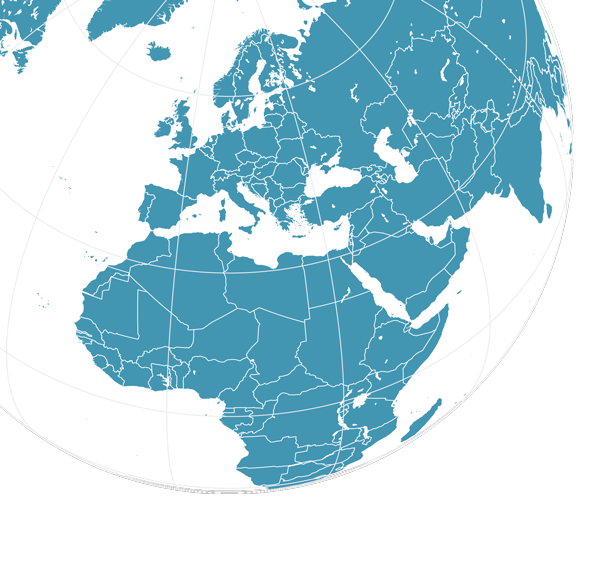
The INFN is an important organisation with a presence in five continents and more than 30 countries, including: Argentina, Armenia, Australia, Belgium, Brazil, Bulgaria, Canada, China, Croatia, Czech Republic, Denmark, Finland, France, Germany, Greece, Holland, Hungary, India, Israel, Japan, Poland, Portugal, Romania, Russia, Slovakia, Spain, Slovenia, South Korea, Sweden , Switzerland, Turkey, UK, Ukraine, and USA.
This strong global presence also reflects the deeply rooted international scope of scientific collaboration in the domain of physics research. Most research activities promoted and conducted by the INFN are undertaken within a network of collaboration, at foreign and international laboratories and at its own facilities in Italy, involving large numbers of scientists from all over the world.
Of its countless international activities, some of the most important research is conducted at CERN in Geneva. Italy was one of the European laboratory’s founding Member States and, through the INFN, it continues to be one of its most active members.
Around 1,000 scientists from the INFN work in research groups at CERN, taking part in all experiments with the LHC particle accelerator (CMS, ATLAS, ALICE, LHCb, LHCf, Totem) and the SPS accelerator (COMPASS).
The INFN is also a major contributor to experiments at other leading foreign laboratories including FERMILAB, SLAC, BNL, and JLAB (United States); PNPI, BINP and JINR (Russian Federation); CIAE and IHEP (China); RIKEN and KEK (japan); BARC (India), DESY and GSI (Germany), ESRF (France), PSI (Switzerland) etc.
In Italy, international collaboration is mainly concentrated at the INFN’s four national laboratories, where major experimental facilities are available for use by the scientific community. One example is the VIRGO, interferometric antenna at Cascina, near Pisa, a joint-venture with the French CNRS IN2P3.
The INFN also takes part in European scientific computing and nuclear physics projects. Together with numerous other research agencies from leading European countries, it founded the ApPEC (Astroparticle Physics European Coordination); it is a founding member of the French-Italian European Gravitational Observatory (EGO) Consortium (Cascina-Pisa); it is a member of the European Science Foundation (ESF) based in Strasbourg; it coordinates the EU-IndiaGRID2 project to improve grid technology in India. It has representatives on the NuPECC (Nuclear Physics European Collaboration Committee), on the PESC (Physical and Engineering Sciences) of the ESF, on the ICFA (International Committee Future Accelerators), on the ECFA (European Committee Future Accelerators) and on the FALC (Funding Agencies for Large Colliders). It is a member of the European Association for the Promotion of Science and Technology (EUROSCIENCE) in Strasbourg; it holds a stake, with the CNR, in the European Synchrotron Radiation Facility (ESRF) in Grenoble.



